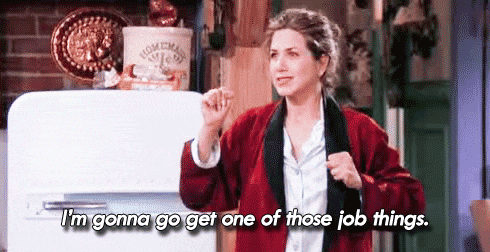 By Paige Waskow
By Paige Waskow
Many people know or have heard of C3 here at Coe, but what do they do and how can they help you? How can you get that internship you've always wanted or make a lasting impression at a job? I talked with Joe Demarest, an Internship Specialist at C3, to ask some questions about what C3 does and how everyone can take steps towards having a successful post college career.
What is your job at C3?
So my title is Internship Specialist, but I deal with a lot more than just that. All the C3 consultants help with career exploration and consulting. We all help students get connected to Cedar Rapids and engage with community members.
What can students get help with?
I think it really is about meeting the student where they are at. One of the first questions I ask is: How can I help you? Not every student needs the same interaction and has the same needs. For some students it can be an interest inventory (like looking at majors) or job shadowing. Sophomores and Juniors typically do cover letters, job searching, and networking. It could be making the transition from the academic environment to real world.
What opportunity should every student take at C3?
I think every student should meet with us at least once to see where they want to be in the future. Different career paths may change how much a student interacts with C3. Their experience, if in the hard sciences, may be more professor based versus a student who wants to be in social work and needs help connecting with nonprofits. My biggest fear is a student leaving thinking that they are going to be happy but not having experiences and not having it figured out. Outside input is great for every student.
What are the most important things a student should do each year?
Freshman:
Freshman year is really about transition to college, 1st semester is getting into the new environment, and learning what you need to do to be successful. Asking: what might my future hold? And thinking about thing long term. Freshman should start trying different things and doing networking opportunities through C3.
Sophomore:
Sophomore year can often get lost in the mix. Ideally a Sophomore should start thinking more about how they can do some real exploration along the lines of summer opportunities and research. They should have more conversation about things like LinkedIn and start thinking about audience. Asking: How am I starting to engage? Some themes include: Internships to just get some experience. A working cover letter. More leadership opportunities in clubs. Considering life after college. (Grad school, working, etc.)
Junior:
Junior year is very important, you don’t want to slip through and not pay attention. It is a continuation of what has been done Sophomore year.
Senior:
Senior year is a lot about tying up loose ends such as practicums and ensuring that you are able to graduate. There should be more focus on life after college but still finishing strong.
In your experience, what kind of students stand out the most when applying for internships, jobs, etc.?
Those that start early (and it doesn’t need to be full throttle but it does need to be engaged.) Acknowledging time and how important it is and how fast it really goes. If you always think you have more time, you don’t realize how quickly it goes until it is gone.
What C3 event should every student attend?
You should attend all of them. The career fair is one that would be really good to go to. Getting to know local employers and opportunities even for 1st year students is very important. Getting on the company’s radar as an interested student and making connections can be really helpful. Sip and Socialize is another good event to attend. So many jobs are being landed through networking and being able to connect with alumni. Data shows that networking is key. It’s also about learning how to have those conversations with professionals when you leave college.
Thanks to Joe for taking the time to answer my questions!













